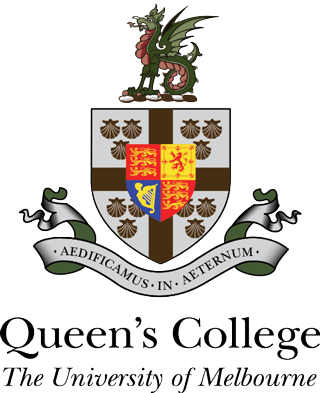Connecting Health and Climate Change Policy
Connecting Health and Climate Change Policy
Academic Profile: Annabelle Workman (2005)
Wyvern, and first-year Queen’s College undergraduate mentor, Annabelle Workman (2005), has recently arrived back to Australia after spending five weeks in Brussels researching EU policy responses to the short-term health impacts of climate change as part of her Ph.D candidature.
Annabelle spoke to representatives from all of the departments in the European Commission who are responsible for climate change policy to gauge how much consideration they give to short-term health impacts, such as those caused by air and water pollutants, when making policy decisions on emission reduction targets. The EU is one of three case studies that Annabelle is investigating, along with Australia and China for her thesis. To understand the weight assigned to short-term health impacts, Annabelle explains that she is asking climate policy makers, “about the process that is used to develop policy, how health is considered, what the barriers and enablers are for the consideration of health, what the evidence base for the policy that is developed is, and the role of other external actors and stakeholders”. Her project is essentially asking the question:
“what is the role of health, and can health be more meaningfully incorporated into the development of climate change policy so that we can then justify more ambitious policy development?”
“what is the role of health, and can health be more meaningfully incorporated into the development of climate change policy so that we can then justify more ambitious policy development?”
Part of the answer to this question is already known, with Annabelle having already completed the Australian case study (see here). So how does Australia stack up? It turns out, not very well compared to many other countries, “health is not meaningfully considered in the development of emissions reduction polices, other than in relation to vehicle emissions”, Annabelle reports. The reasons for this are partly related to governance issues with the split between state and Commonwealth responsibilities on health, and also due our beautiful blue skies. “It’s very difficult then to make the argument that our health is being adversely impacted by the combustion of fossil fuels,” Annabelle notes.
In contrast, one country that does place significant weight on short-term impacts health when devising climate policy—not surprisingly considering the well-known air pollution experienced in it’s largest cities—is China. And in the vacuum left by President Trump’s announcement of his country’s withdrawal from the Paris climate agreement, Annabelle notes that China and the EU are prepared to step in as global leaders and push for ambitious emissions reduction targets.
Two years into her project Annabelle is looking forward to visiting China at the end of the year for her final case study. Her project is just one of many being conducted by the recently formed EU Centre on Shared Complex Challenges at the University of Melbourne. The centre is a joint initiative between the EU and the University of Melbourne with research and a suite of educational events being conducted across three streams: climate and energy, regional governance, and innovation.
Annabelle is a familiar and friendly face around ‘the Close’ here at the college where she lives on-site with her husband, the Dean of Student Wellbeing, Jake Workman, and their young family. We wish Annabelle well for the remainder of her project and look forward to the publication of her final thesis and her contribution to the incredibly urgent and important task of how we collectively respond to the dangers of climate change.
